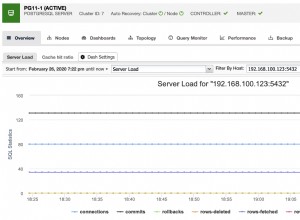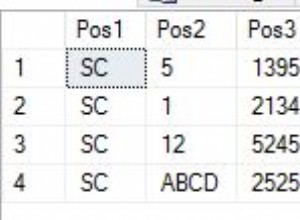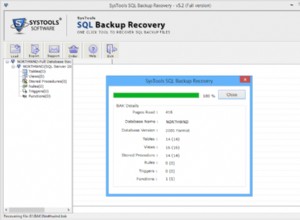Supponendo che i dati effettivi non siano più complessi degli esempi indicati, questo dovrebbe funzionare senza ricorrere a RegEx:
DECLARE @posts TABLE
(
post_id INT NOT NULL IDENTITY(1, 1),
post_text NVARCHAR(4000) NOT NULL,
body NVARCHAR(2048) NULL
);
INSERT INTO @posts (post_text, body) VALUES (N'first',
N'Visit [Google](https://google.com)');
INSERT INTO @posts (post_text, body) VALUES (N'second',
N'Get an [iPhone](https://www.apple.com)');
INSERT INTO @posts (post_text, body) VALUES (N'third',
N'[Example](https://example.com)');
INSERT INTO @posts (post_text, body) VALUES (N'fourth',
N'This is a message');
INSERT INTO @posts (post_text, body) VALUES (N'fifth',
N'I like cookies (chocolate chip)');
INSERT INTO @posts (post_text, body) VALUES (N'sixth',
N'[Frankie] says ''Relax''');
INSERT INTO @posts (post_text, body) VALUES (N'seventh',
NULL);
SELECT p.post_text,
SUBSTRING(
p.body,
CHARINDEX(N'](', p.body) + 2,
CHARINDEX(N')', p.body) - (CHARINDEX(N'](', p.body) + 2)
) AS [URL]
FROM @posts p
WHERE p.body like '%\[%](http%)%' ESCAPE '\';
Uscita:
post_text URL
first https://google.com
second https://www.apple.com
third https://example.com
PS:
Se davvero vuoi usare le espressioni regolari, possono essere eseguite solo tramite SQLCLR. Puoi scrivere le tue o scaricare librerie già pronte. Ho scritto una di queste librerie, SQL#
, che ha una versione gratuita che include le funzioni RegEx. Ma quelli dovrebbero essere usati solo se non è possibile trovare una soluzione T-SQL, cosa che finora non è il caso qui.




